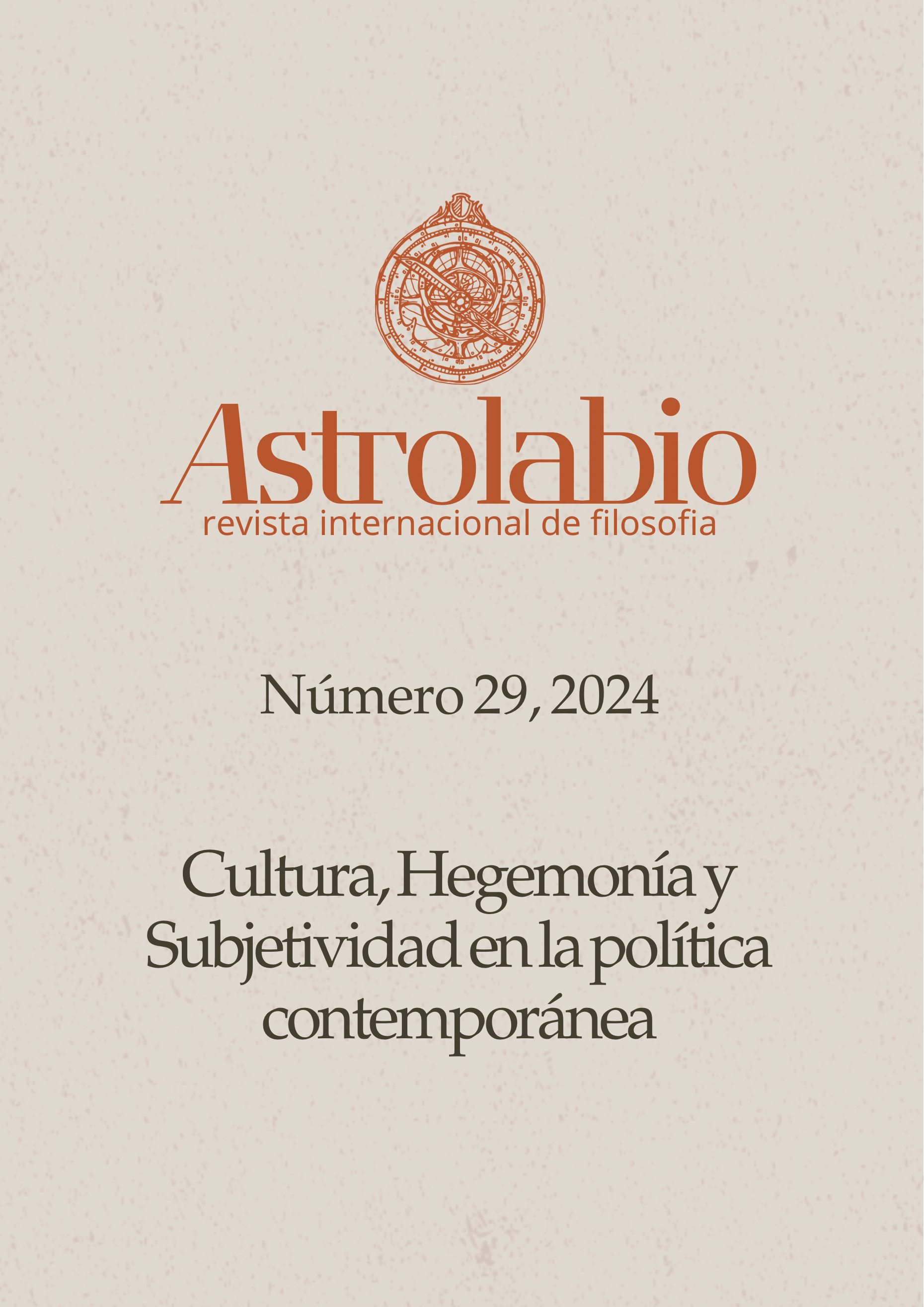Hegemony and Governance in Financialized Capitalism
DOI:
https://doi.org/10.1344/astrolabio.v1i29.48106Keywords:
Neoliberalism, Financialization, Governance, Popular-Governance, Public-PoliciesAbstract
This article characterizes the current stage of capitalism based on the centrality of speculative mechanisms based on fictitious capital and their consequences in the totality of the reproduction of life. It identifies a symbiotic relationship between the reproduction of capital and public administration as a way of recomposing bourgeois power over the last 40 years. To this end, it presents an interpretation of the current form of relationship between the State and Civil Society and the formation of new hegemonic power blocs. In this relationship, it demonstrates the existence of mechanisms for decentralizing the state stricto sensu through the formation of public-private partnerships with companies and non-governmental organizations of civil society. In this context, it asks: what are the limits and potential for strengthening democracy? Inspired by Adorno's negative dialectics, the article suggests the hypothesis of the emergence of a new form of social governance opposed to hegemonic capitalist governance. Taking into account the resistance of the peoples of South America in their territories who build their own mechanisms of power and sovereignty to self-determine their destinies, it reflects on the possibility of popular governance, as named by the philosopher Slavoj Zizek.
References
Adorno, T. W. (2009). Dialética negativa. Rio de Janeiro: Zahar.
Arendt, H. (1989). Origens do totalitarismo (8ª ed., Trad. R. Raposo). São Paulo: Companhia das Letras.
Benjamin, W. (2012). Magia, arte e política: ensaios sobre literatura, história da cultura (8ª ed., Trad. S. P. Rouanet; Prefácio J. M. Gagnebin). São Paulo: Brasiliense. (Obras Escolhidas, v.1)
Braga, J. C. de S. (2016). A financeirização da riqueza: a macroestrutura financeira e a nova dinâmica dos capitalismos centrais. Economia e Sociedade, 2(1), 25-57. Disponível em https://www.periodicos.sbu.unicamp.br/ojs/index.php/ecos/article/view/8643298
Centro Latino-Americano de Administração para o Desenvolvimento. (1998). Uma nova gestão pública para a América Latina. Disponível em http://www.bresserpereira.org.br/Documents/MARE/CLAD/ngppor.pdf
Chauí, M. (2020). Totalitarismo neoliberal. Anacronismo e Irrupción, 10(18), 307-328. Disponível em https://publicaciones.sociales.uba.ar/index.php/anacronismo/article/view/5434
Chesnais, F. (1996). A mundialização do capital (Trad. S. F. Foá). São Paulo: Xamã.
Foucault, M. (2013). Vigiar e punir: nascimento da prisão (41ª ed.). Petrópolis: Vozes.
Gramsci, A. (2021). O leitor de Gramsci: escritos escolhidos 1916-1935 (C. N. Coutinho, Org., 3ª ed.). Rio de Janeiro: Civilização Brasileira.
Harvey, D. (2018). A loucura da razão econômica: Marx e o capital no século XXI (Trad. A. Renzo). São Paulo: Boitempo.
Hilferding, R. (1985). O capital financeiro (1ª ed.). São Paulo: Nova Cultural.
Kant, I. (2009). Sobre a discordância entre a moral e a política a propósito da paz perpétua. In Textos seletos (5ª ed., Trad. F. de Sousa Fernandes). Petrópolis: Vozes.
Lenin, V. I. (n.d.). Imperialismo, fase superior do capitalismo (1ª ed.). São Paulo: Expressão Popular.
Mayos, G. (2012). Macrofilosofía de la modernidad. Barcelona: DLibro.
Ricoeur, P. (2011). Hermenêutica e ideologias. Petrópolis: Vozes.
Santos, M. (2003). Por uma outra globalização: do pensamento único à consciência universal (10ª ed.). Rio de Janeiro: Record.
Teixeira, A. L. A., & Gomes, H. (2021). O capital em movimentos: dos ciclos às formas autonomizadas do capital. In G. M. C. Mello & P. Nakatani (Orgs.), Introdução à crítica da financeirização: Marx e o moderno sistema de crédito (1ª ed.). São Paulo: Expressão Popular.
Downloads
Published
How to Cite
Issue
Section
License
Copyright (c) 2024 Fábio José Alves Garrido

This work is licensed under a Creative Commons Attribution 4.0 International License.
Total or partial reproduction of the works published in the Journal is permitted, provided the source is cited.
The copyright of the articles published in the Journal belongs to the authors, with first publication rights reserved for this journal. The articles will be distributed under the CC BY 4.0 license (Attribution 4.0 International).



